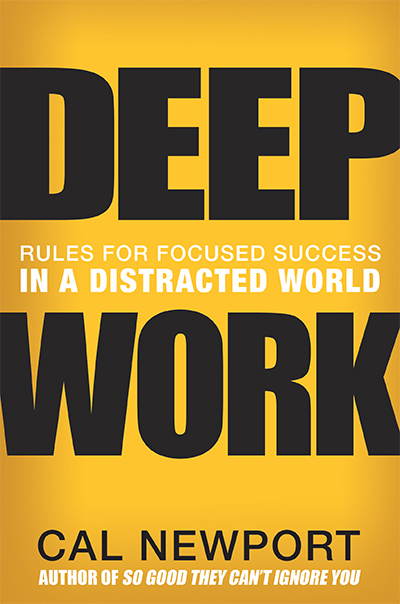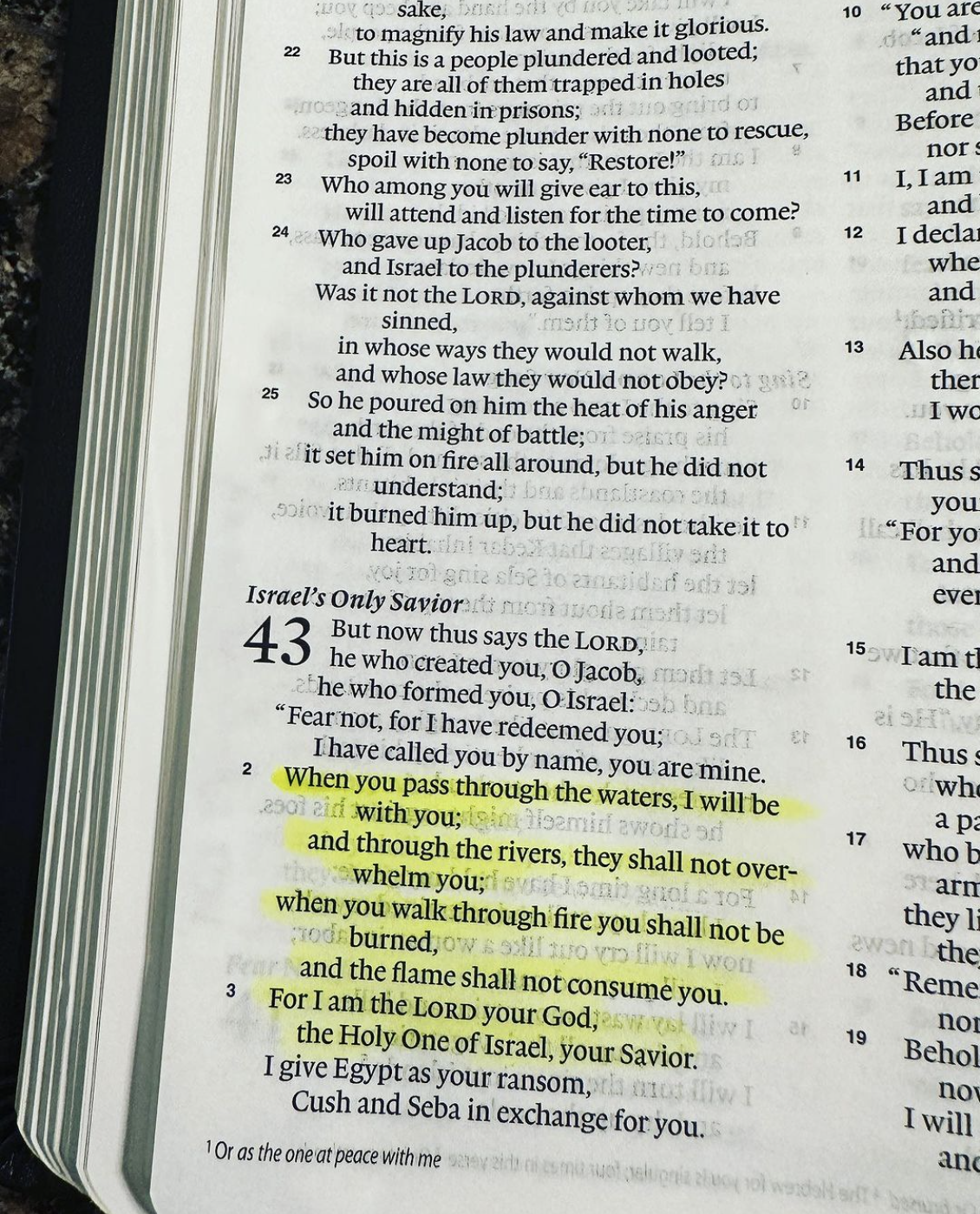“Distraction remains a destroyer of depth.” Cal Newport, Deep Work
Do you get tired of scrolling? Wondering where those past two hours went and why you chose to spend your finite time reading about things that really don’t matter? When is the last time that you carved out a significant chunk of time to just think? To just wonder about things or to try and find a solution to a problem? Deep Work by Cal Newport lays the foundation for the difference between deep work and shallow work challenging the reader to spend their time on things that really matter. This book isn’t founded on Christian principles, but is a great resource for Christians who truly desire to spend their life for the sake of the gospel doing work that glorifies God by serving others as we find our identity in Christ. I’m grateful for a friend that shared this book with me as I know our friendship is based on things that really matter…living a life that benefits the kingdom of God. Excellent read! Can’t wait to get my hands on some of Newport’s other work.
I highlighted several things while reading and have posted those notes below…
- Deep Work: Professional activities performed in a state of distraction-free concentration that push your cognitive capabilities to their limit. These efforts create new value, improve your skills, and are hard to replicate. p. 3
- Deep work is necessary to wring every last drop of value out of your current intellectual capacity. p. 3
- Shallow Work: Noncognitively demanding, logistical-style tasks, often performed while distracted. These efforts tend to not create much new value in the world and are easy to replicate. p. 6
- Deep work is not an old-fashioned skill falling into irrelevance. It’s instead a crucial ability for anyone looking to move ahead in a globally competitive information economy that tends to chew up and spit out those who aren’t earning their keep. The real rewards are reserved not for those who are comfortable using Facebook, but instead for those who are comfortable building the innovative distributed systems that run the service (a decidedly deep task, hard to replicate). Deep work is so important that we might consider it, to use the phrasing of business writer Eric Barker, “the superpower of the 21st century.” p. 14
- The Deep Work Hypothesis: The ability to perform deep work is becoming increasingly rare at exactly the same time it is becoming increasingly valuable in our economy. As a consequence, the few who cultivate this skill, and then make it the core of their working life, will thrive. p. 14
- Two Core Abilities for Thriving in the New Economy:
1. The ability to quickly master hard things.
2. The ability to produce at an elite level, in terms of both quality and speed. p. 29 - High-Quality Work Produced= (Time Spent) x (Intensity of Focus) p. 40
- My objective is to convince you that although our current embrace of distraction is a real phenomenon, it’s built on an unstable foundation and can easily be dismissed once you decide to cultivate a deep work ethic. p. 53
- The Principle of Least Resistance: In a business setting, without clear feedback on the impact of various behaviors to the bottom line, we will tend toward behaviors that are easiest in the moment. p. 58
- Clarity about what matters provides clarity about what does not. p. 62
- Busyness as Proxy for Productivity: In the absence of clear indicators of what it means to be productive and valuable in their jobs, many knowledge workers turn back toward an industrial indicator of productivity: doing lots of stuff in a visible manner. p. 64
- “I’ll live the focused life, because it’s the best kind there is.” Winifred Gallagher p. 92
- You have a finite amount of willpower that becomes depleted as you use it. p. 100
- The key to developing a deep work habit is to move beyond good intentions and add routines and rituals to your working life designed to minimize the amount of your limited willpower necessary to transition into and maintain a state of unbroken concentration. p. 100
- Distraction remains a destroyer of depth. p. 134
- Focus on the wildly important. p. 136
- Act on the lead measures. p.137
- Keep a compelling scoreboard. p. 139
- Create a cadence of accountability. p. 140
- “Idleness is not just a vacation, an indulgence or a vice; it is as indispensable to the brain as Vitamin D is to the body, and deprived of it we suffer a mental affliction as disfiguring as rickets…it is, paradoxically, necessary to getting any work done.” Tim Kreider p. 143
- “Committing to a specific plan for a goal may therefore not only facilitate attainment of the goal but may also free cognitive resources for other pursuits.” Roy Baumeister and EJ Masicampo “Consider it Done!” p. 153
- Don’t take breaks from distraction, instead take breaks from focus. p. 159
- To simply wait and be bored has become a novel experience in modern life, but from the perspective of concentration training, it’s incredibly valuable. p. 165
- The Craftsman approach to tool selection: Identify the core factors that determine success and happiness in your professional and personal life. Adopt a tool only if its positive impacts on these factors substantially outweigh it’s negative impact. p. 191



